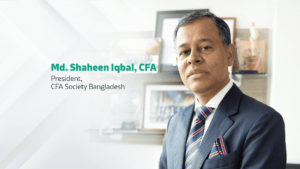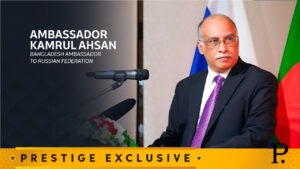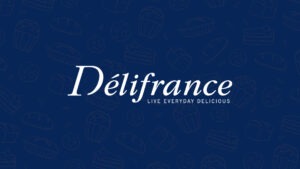1. Let’s start with a brief introduction to your early life and education.
I was born and brought up in Izmit, a city situated near Istanbul. My father was an engineer, and my mother was a housewife. I spent my childhood with my brother and my sister in Izmit. Later, I moved to Ankara to study at the Middle East Technical University. I got the opportunity to study International Relations at this well-renowned university. Later, I completed my Master’s degree and joined the ministry of foreign affairs. Since then, I have been serving as a diplomat. The reason behind choosing this role is my undying passion for representing my country, my passion for knowing other cultures, and my love for travel.
I started my career as a diplomat in 1992, and it has been almost 30 years since then. I served in 7 different countries before I came to Bangladesh. Among them are mostly European countries like Austria, Italy, Belgium, and the Balkans region. I served at the Turkish diplomatic missions in the Balkans region for about 4 years, in Albania, North Macedonia, and Kosovo. Those times were quite difficult for the Balkans, and being there in person gave me a lot of experience as a diplomat. I also served in Afghanistan for about a year. It was a time when Afghanistan was going through intense fighting, and I was stationed there to deliver development assistance to the country which also enriched my diplomatic experiences.
Before coming to Bangladesh, my last duty was in Ankara as in charge of multilateral economic affairs. I was also dealing with sustainable development goals and with multilateral organizations like G20, UNDP etc. It has been a year and a half since I came to Bangladesh, and it has been an honor being here. I have a lot of plans in hand which I aim to implement. We moved our embassy from the old compound to the new one more than a year ago. Last year on the 8th of March, we had hosted a cultural event on the occasion of International Women’s Day, where we invited over 150 people and exhibited arts of various women painters of Bangladesh and other cultural performances like folk music and dance performances. But unfortunately, immediately after that, the pandemic situation started and the government imposed a nationwide lockdown. Regardless of everything being slowed down and stopped for a while, I tried to visit a few cities like Cox’s Bazar, Chittagong, Sylhet, and Lalmonirhat whenever I got the opportunity. I am looking forward to doing more things here as Turkey and Bangladesh share a very close bond.

2. What’s the story behind you becoming an ambassador and what are the reasons for joining the diplomatic field?
Every diplomat aspires to be an ambassador at one point in his/her career, which is considered the ultimate goal. Perhaps one of the reasons why I became a diplomat and eventually an ambassador is because I care about peace and justice in the world. I also feel myself a global citizen and my traveling around the world has exposed me to different realities. During my time in Afghanistan and the Balkans, those regions were going through difficult times. I decided to contribute to world peace and justice, which was my main reason for becoming a diplomat alongside representing my country.

3. Did you always dream of serving your country and becoming an ambassador?
My childhood dream was far away from becoming an ambassador. During high school, I wanted to become an architect. In my childhood, I along with my friends used to construct toy houses to play in, which inspired me a lot to pursue that profession. I wanted to become an architect because I believed that physical spaces can affect our emotions and inspire us a lot. I wanted to inspire others with my creations, but destiny took me in another direction.
Despite my career going towards a different route, I am still interested in architecture. I consider myself as a social architect which refers to connecting people through meaningful conversations in inspirational places. So, I organize journeys where I invite my friends in Turkey and abroad, and we travel to different places and have conversations. Eventually, through these conversations, people get bonded together creating a like-minded community. Therefore, I call myself a social architect. I have been hosting such journeys since 2017 and planning to host another one in the coming days during my holiday in Turkey.

4. Share your journey as an ambassador in Bangladesh and how are you adapting to the changing culture?
It is not very different here for me or for any other Turkish people in Bangladesh as there are many similarities between us including our shared religious beliefs. One of the things we have most in common is our generous hospitality. Turkey is a hospitable country and culture, we respect foreigners and try to serve them as best as we can, and it’s the same here, or maybe even more. So, I feel at home because of the similarities. Not only that, but we have also shared a lot of history and interactions among our people, starting from the arrival of Sufi spiritual leaders back in the 12-13th century. All these Sufi leaders like Hazrat Shahjalal and others were inspired by the worldview and philosophy of Mawlana Jalaluddin-i Rumi. These Sufi leaders taught us to be tolerant and respectful toward others, which created the basic foundation of our shared culture. We also consider Mughal Empire as one of the 16 Turkish states established throughout history. So, when I see the historical architecture in Bangladesh, I find a lot of similarities between the Ottoman and the Mughal architectural styles.
Also, we had a lot of interactions because of our liberation war, which took place at the end of the first world war back in the early 1920s. Our father of the nation, Mustafa Kemal Atatürk fought the war against the British, the French, the Italians, and the Greeks, who occupied our country at the end of the first world war. Mustafa Kemal Atatürk fought for more than 3 years, won against them, and modernized the country. That also became an inspiration for the Bengalis and their culture. For example, Kazi Nazrul Islam wrote his famous poem named “Kamal Pasha” out of his admiration for Mustafa Kemal and what he did for the Turkish nation. Through Kazi Nazrul Islam, I see a link between Kemal Atatürk and Bangabandhu Sheikh Mujibur Rahman because of their ideas about independence, freedom, nationalism, and secularism. We are also grateful for the moral and material support received from the Bengali people during our war of liberation.
I see our countries influencing each other a lot and we feel at home here in Bangladesh. I did not need to adapt too much, and I am very comfortable with the culture, religion, people, and traditions.

5. How do you perceive the diplomatic & Trade relationship between Turkey and Bangladesh?
I believe we have reached a very good level at this moment. Our Honorable Minister of Foreign Affairs H.E. Mevlüt Çavuşoğlu was here last year in December and Honorable BangladeshiMinister of Foreign Affairs H.E. AK Abdul Momen visited Turkey last year in September. These two important visits show us how excellent the relationship Turkey and Bangladesh has. We are planning to bring our president, Mr. Recep Tayyip Erdoğan to Bangladesh as well. Due to the pandemic, it may not be possible anytime soon but we are looking forward to his visit.
Our diplomatic relations are excellent and in terms of trade and investments, there is a huge potential. Currently, we have a trading volume of 1 billion USD and despite the pandemic, it is increasing. It is expected to grow up to 1.2 billion dollars by the end of this year. So, it is great news and after the pandemic, our bilateral trade can grow up to 2 billion dollars. For example, we buy 300 million USD worth of jute from Bangladesh for our carpet industry each year. We also buy agricultural and RMG products. On the other hand, we sell machinery, chemicals, processed food, and other items to Bangladesh. We aim to diversify our trade in the near future.
I’m talking to many industrialists from both countries regarding potential business and investment opportunities. We already have two big companies that are investing in Bangladesh. The first one is Aygaz, which is an LPG company that decided to invest over 100 million dollars in Chittagong. They will fill and distribute gas cylinders to households. Another Turkish investor is called Arçelik, which is one of our most innovative companies. They recently bought the majority of the shares from Singer Bangladesh. Currently, they are producing refrigerators, TV sets, air conditioners in Bangladesh and they are now planning to expand their business. Both of these examples show that, because of its growing economy, young population, and huge domestic market, Bangladesh is very attractive for Turkish investors.
We hope to attract more Turkish industrialists and businesses in the future. I am hoping to create a Bangladesh-Turkey business platform. I have already spoken to some powerful companies about this, and they are very much interested. Through this, we plan to promote and rebrand Turkey in Bangladesh and vice versa. I hope that both of the nations can progress together in the future.

6. According to you, what are the potential Investment sectors you have found in Bangladesh?
Bangladesh is well known for its RMG sector but other sectors are still unknown abroad. These less-known sectors can be interesting to invest in. Thanks to the leadership of the honorable Prime Minister Sheikh Hasina and her government, the digital Bangladesh program has been a success. This success has made ICT an interesting sector to invest in. A lot of IT companies and freelance IT professionals now exist in Bangladesh. Many startups are also working on interesting solutions. So, one of my objectives is to bring closer and connect the ICT sectors of both countries. Turkey has also made huge progress in ICT in the last two years. I would like to organize some B2B meetings between our ICT companies.
Recently, I had a very fruitful meeting with the president of BASIS. We are also talking to FBCCI, they recently signed an MOU with their counterpart in Turkey. We aim to start a B2B meeting between ICT, RMG, and Pharmaceutical companies. These are the sectors in Bangladesh that have made huge progress.
Bangladesh is producing 98% of their need in pharmaceuticals and also exporting to more than 130 countries which is a big success. I hope that Bangladesh will achieve more in this sector. There is also the shipbuilding sector where we can have joint ventures to build civilian or military ships together. Agriculture is a very dynamic sector in Bangladesh where we can help Bangladesh with joint ventures, providing modern technologies and food processing solutions.

7. Tell us about the collaboration opportunities with Turkish companies and their interest in doing business in Bangladesh.
There are many opportunities as I previously mentioned. They can trade and create joint ventures, . To utilize this, we need to establish more contacts. Construction is another sector I would like to mention as an example. Bangladesh needs to improve its infrastructure even more. It needs more advanced roads, bridges, ports, airports, and power stations. I am glad that Bangladesh doesn’t have any power shortage but the grid network needs to be improved and well distributed throughout the country. These are the places we can collaborate as the Turkish contracting companies are fast, reliable, and one of the best all over the world.
Speaking of collaboration, health services are also another promising sector. Due to Bangladesh’s large population, it requires more and better medical support. I see a lot of people going abroad for treatment and spending a lot of money. If Bangladesh has better hospitals, they wouldn’t have to take the hassle of going abroad and the money they are spending will remain in the country. Therefore, some foreign investment is required in the health sector. During the visit to Turkey, the Bangladeshi foreign minister met the president of Turkey, and during that meeting, they decided that a Turkish hospital can be built in Dhaka. So, we are now looking for suitable land for it. It will be a joint venture between the Bangladesh government and the private sector.

8. What are the projects you are currently working on right now and which do you find very potential?
Among the many works we do, we are currently assisting the government to host over a million Rohingya refugees. We have 4 different agencies in Cox’s Bazar, providing many different services including health services through our field hospital, constructing shelters, and distributing food and non-food items. We also hope to support the Bangladeshi government for the refugees who are relocated to Bhashanchar island. We are waiting for an agreement between UNHCR and the government of Bangladesh. Once there is an agreement, we will be able to do more.
We would also like to improve our cultural cooperation and university-level collaboration. I visited the Vice-chancellor of Dhaka University and we are planning to establish an exchange program between academics and researchers after the pandemic. We are planning to host a few events in December in collaboration with the government of Bangladesh.
Alongside all our projects, currently, we have initiated a project called Sustainable Development Goals Impact Accelerator. It is an accelerator to support and empower startups from all across the globe. Our ministry started this project two years back. In this accelerator program, we call startups from all around the world to work on solving big questions and grand challenges related to SDGs. We did the first program in Turkey, and the startups we invited addressed challenges related to refugees in Turkey. Turkey is just the same as Bangladesh in terms of giving shelter to a large number of refugees. At this moment, we are hosting around 3.5 million refugees in Turkey. So, the last accelerator program addressing this major issue was quite a success, and we are doing the second program this year in Bangladesh and Uganda. In Bangladesh, we are addressing financial inclusion through Fintech solutions. In Uganda, we are addressing agricultural issues through digital agriculture. We opened the call in March, and we received over 1000 applications. We have selected 40 of them, and in the end, we graduated 4 startups. It was open to every country, and many Bangladeshi startups also applied. Bangladesh has many promising startups. The program ended in July and we had a demo day where the ICT minister Junaid Ahmed Palak was also present. And you will be glad to know that two best startups selected from the financial inclusion cohort were from Bangladesh. Now they will be funded up to 100,000 USD to implement their solutions in financial inclusion.

9. How much are you enjoying your stay in Bangladesh and what is something you find very much interesting in our country?
I am enjoying my stay in Bangladesh quite a lot but I could’ve enjoyed it more if there were no pandemic. I wish to meet more people and host them here in our embassy. We plan to host many more events in our embassy as soon as the pandemic is dealt with. I am really curious about the Bangla new year celebration as I saw it in photos but it has not been celebrated since I came here, because of the pandemic. I’m also curious to visit the Sundarbans. I feel that Bangladesh has a lot to offer than one can imagine and look forward to gaining a fruitful and rewarding experience here in this country.

10. What advice would you give to the youths who aspire to work in the foreign service sector?
I would like to advise the youth that as they love their country, one of the best professions you can choose to be is becoming a diplomat. If you are proud of your country, nothing surpasses the pleasure of representing it. To be able to do that they need to acquire proper knowledge. Firstly, they need to learn foreign languages very well. They need to be fluent at least in one foreign language and English is highly preferred. You can also learn French, German, Chinese, Russian and Turkish as it is great to know the language of the land you are serving in. It brings an added value and helps to understand the culture better. Alongside this, they need to learn about their history and their roots. They need to learn about the pain and agony of their ancestors and hold their teachings and values in their hearts.
There is a lot to learn from history. If you want to be a diplomat, not only do you need to be a master in some special fields, you also need to have a general knowledge about almost everything. Being good at social relations is another skill you need to acquire as you will get to meet a lot of different people.
One last thing I want to add is that diplomacy has changed quite a bit since the time I’ve started. Today it is more technology-driven due to recent advances in science and technology. In the future, with artificial intelligence, we will be able to forecast whether there will be any conflict between countries. So, it is also essential to be aware of emerging technologies and their consequences if you want to be a good diplomat.






